Backstreet abortions: Illegal, dingy clinics advertise ‘safe ... pain free’ procedures
ILLEGAL abortions for women who are as far as six months pregnant are just a text message away, a news.com.au investigation has revealed.
“SAFE abortions — pain free,” one flyer stuck to a tin shack reads.
The advertisement includes a phone number and guarantees “same day” procedures.
It’s one of hundreds like it plastered around the cities and shanty towns of South Africa, where the majority of citizens live below the poverty line.
Nearly half of the estimated 56 million abortions performed worldwide every year are unsafe and women in poor countries face even higher risks, according to a new report by the World Health Organisation (WHO) and the Guttmacher Institute.
In South Africa, where an estimated 150,000 women risk dangerous and illegal abortions every year, business is booming for the criminals who often masquerade as doctors. The terminations are achieved without any pre-screening and in unhygenic conditions that don’t meet medical standards. A news.com.au investigation has revealed that some illegal operators perform abortions on women as far as six months pregnant.
A 2012 study suggests that approximately 63 per cent of all abortions performed in South Africa are unsafe, causing about 26 per cent of all maternal deaths in the country.
That’s despite legislation having been in place for 20 years which allows them to walk into a public hospital or clinic, confirm their pregnancy and gestation period, and receive a free abortion if they are less than 13 weeks along.
But according to Leading Safe Choices, more than 40 per cent of designated abortion clinics in the South Africa refuse to provide the service on religious or cultural grounds. It’s one of several issues, including stigma attached to cultural and religious beliefs, driving women to seek unsafe — and sometimes deadly — backstreet procedures.
It’s often considered faster and easier to get an illegal abortion in South Africa’s poor townships because of the secrecy and anonymity provided. The backstreet providers also perform the procedures when the pregnancies are too far along to be aborted legally.
They often provide pills to abort pregnancies but have also been known to scrape the lining of the uterus with a surgical tool and use other invasive methods, some of which have proven deadly.
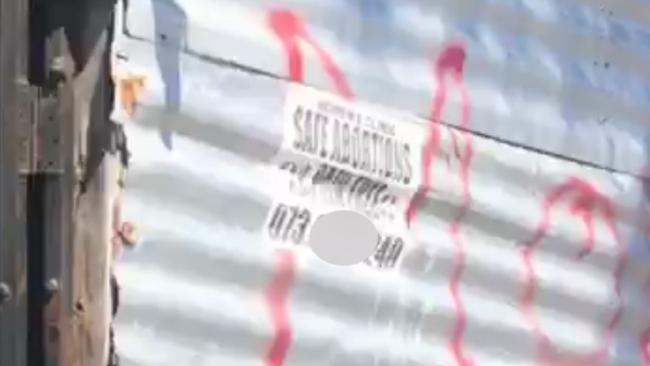
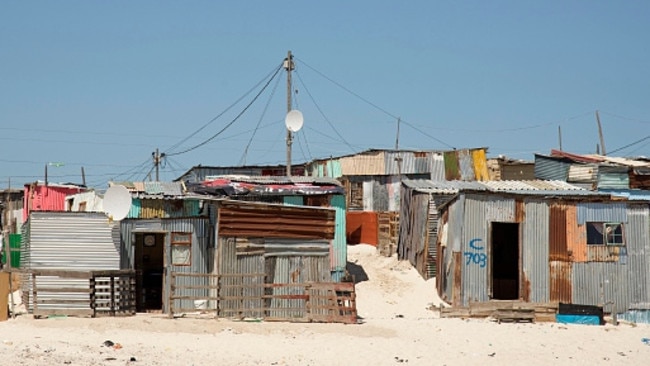
‘I CAN BRING TO YOU THE PILLS’
Langa, one of the country’s biggest and oldest shanty towns, is one of South Africa’s many poverty-stricken settlements where flyers advertising backstreet abortions are a common sight.
One man says he can provide pills to terminate a 12-week pregnancy for R900 ($85AUD) “same day out”.
“That price includes womb cleaning pills to clean u after,” he says.
The man refuses to provide a name or address for the clinic advertised on a flyer. He instead insists to meet potential clients “next to the petrol station”.
“Just come here next to the Shell garage,” he writes in response to a text message from news.com.au who contacted the number on flyers for investigative purposes.
“Call me when you’re there.
“I can bring to u the pills ...(they’re) safe ... no pain.”
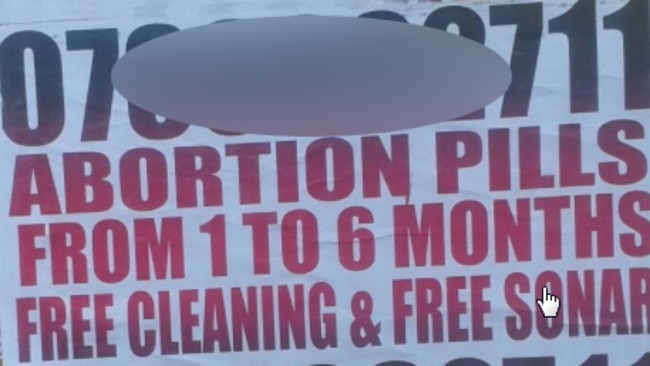
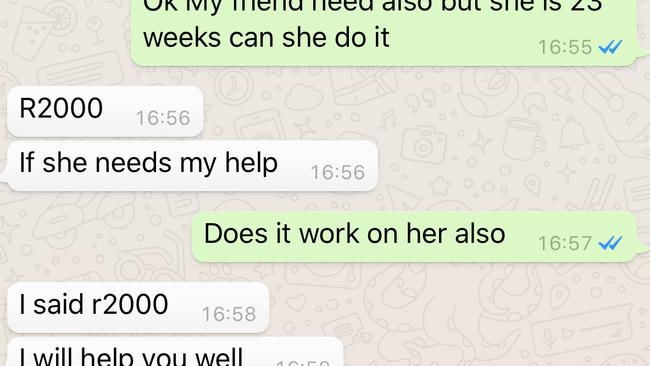
Instructing a potential client to go to a public place where an escort will meet them is a typical response from operators of backstreet abortion clinics who want to keep their locations secret.
But perhaps most alarmingly is their willingness to perform the procedure on women more than 13 weeks pregnant, the maximum pregnancy term allowed for legal abortions.
News.com.au asks the man if he can “help a friend who is 23 weeks pregnant” — almost twice the maximum pregnancy term allowed for legal abortions.
“R2000 ($189AUD),” he responds.
“I will help you well.”
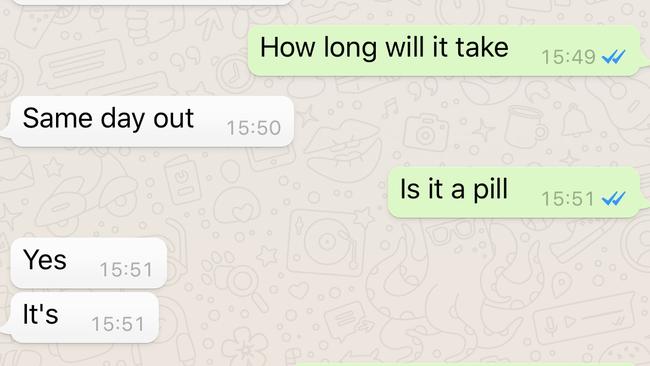
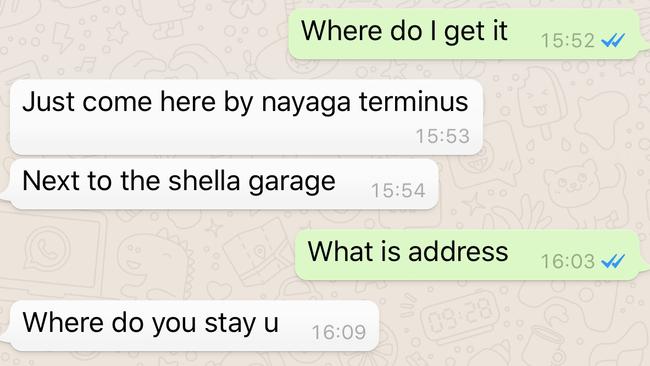
Complications that can arise from unsafe abortions include heavy bleeding, uterine perforation, the tearing of the cervix, severe damage to genitalia and the abdomen, internal infections, pelvic inflammatory disease, blood poisoning and even death.
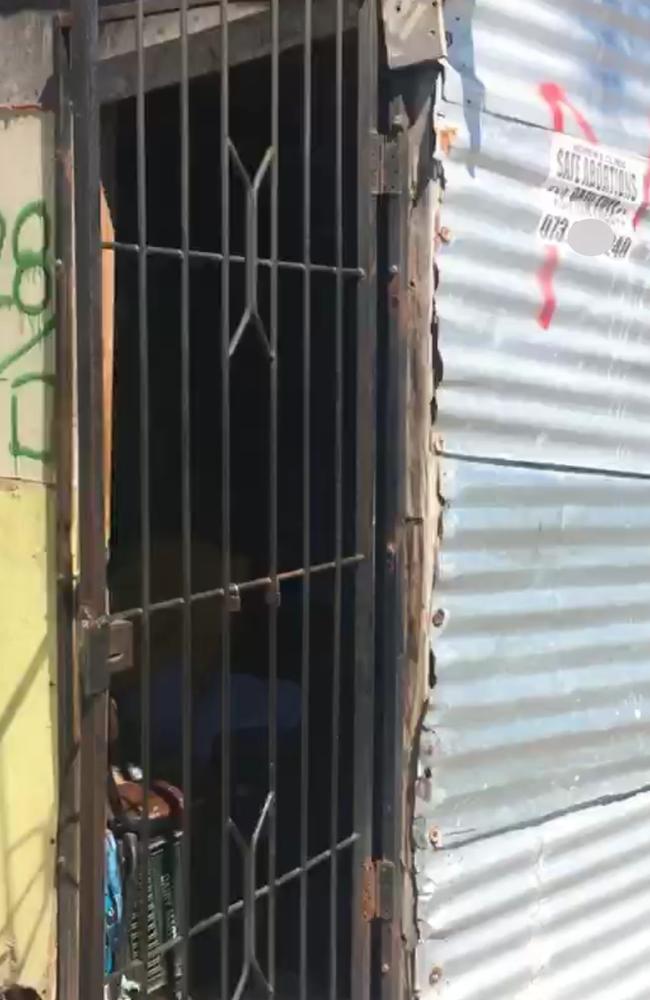
Most of the illegal clinics offer no after-care and sever ties with patients as soon as the procedure is over. They often manage to avoid detection by law enforcement by changing mobile numbers and disappearing when basic after-care is required or clinical complications arise, several Langa township locals told news.com.au.
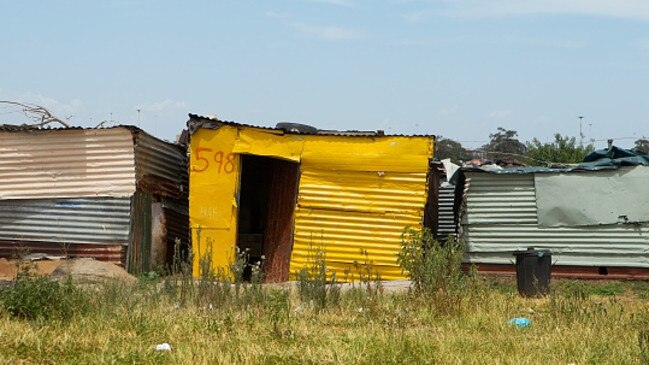
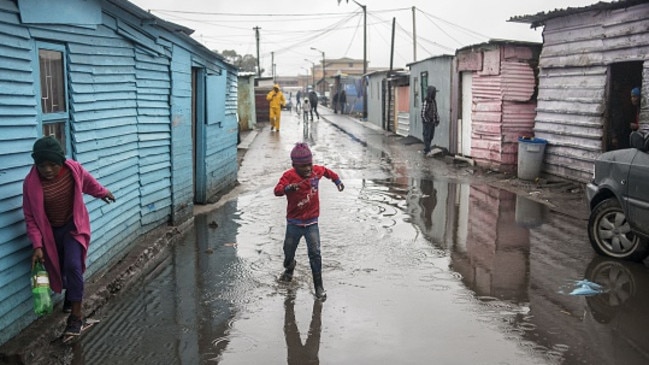
HALF OF WORLD’S ABORTIONS ARE ILLEGAL
While South Africa at least offers legal abortions to citizens under ‘The 1996 Choice on Termination of Pregnancy Act’ it’s not a right afforded to women everywhere.
An estimated 97 per cent of the world’s 25.5 million unsafe abortions — which can endanger the lives of mother, child or both — took place are in Africa, Asia and Latin America each year between 2010-2014, according to the latest figures from the World Health Organisation (WHO) and Guttmacher Institute.
In many African countries, less than 15 per cent of procedures to terminate pregnancy met minimum medical standards, data used to compile the global analysis shows.
The study divided the category of unsafe abortions into two groups: “less” and “least” safe.
“Less safe” abortions — accounting for 30.7 per cent of the total — include those induced with the drug misoprostol without the support of professional health providers, or those performed by trained personnel using outdated methods, such as scraping the lining of the uterus with a surgical tool.
Some 14.4 per cent of all recent abortions — more than eight million per year — fell into the “least safe” group, meaning those provided by untrained individuals using dangerous or invasive methods.
“The vast majority of unsafe abortions in Africa were categorised as ‘least safe’, and were associated with high rates of death,” the researchers said in a statement.
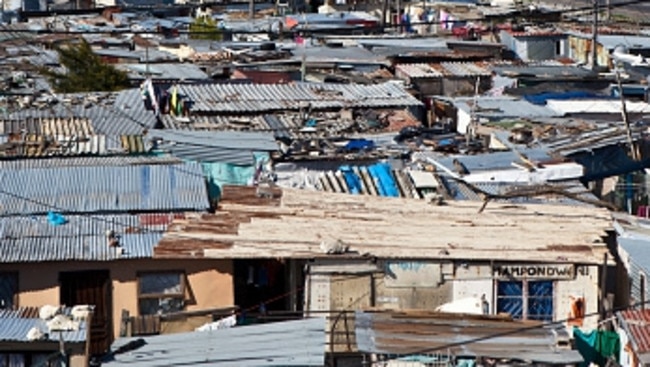
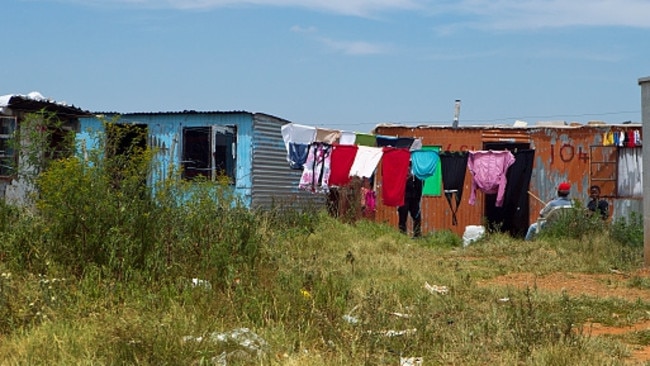
Lead author Dr Bela Ganatra, of the World Health Organisation’s department’s of reproductive health and research, said the findings highlighted the need to ensure access to safe abortions to the full extent of the law, particularly in low income regions.
Health experts said the problem of illegal abortions was worsening globally because of US funding cuts to family planning programs abroad.
US President Donald Trump has reinstated a policy that requires foreign NGOs that receive US global family planning funds to certify that they do not perform abortions or provide abortion advice as a method of family planning.
“Nearly half of abortions in the world are unsafe. And that is surprising because safe abortion is a simple intervention, scientifically speaking,” Dr Ganatra said.
“There is an association between highly restrictive laws and unsafe abortion.
“All women and girls need access to sex education and effective contraception to avoid unwanted pregnancies and get safe abortion services if desired.”
Guttmacher Institute principal research scientist Dr Gilda Sedgh said around 88 per cent of abortions occur in developing countries, where contraception is often lacking.
However, Ireland has some of the world’s strictest abortion laws but the government plans to hold a referendum next year on whether or not it should loosen them.
If you or anyone you know needs support, call Lifeline on 131114




